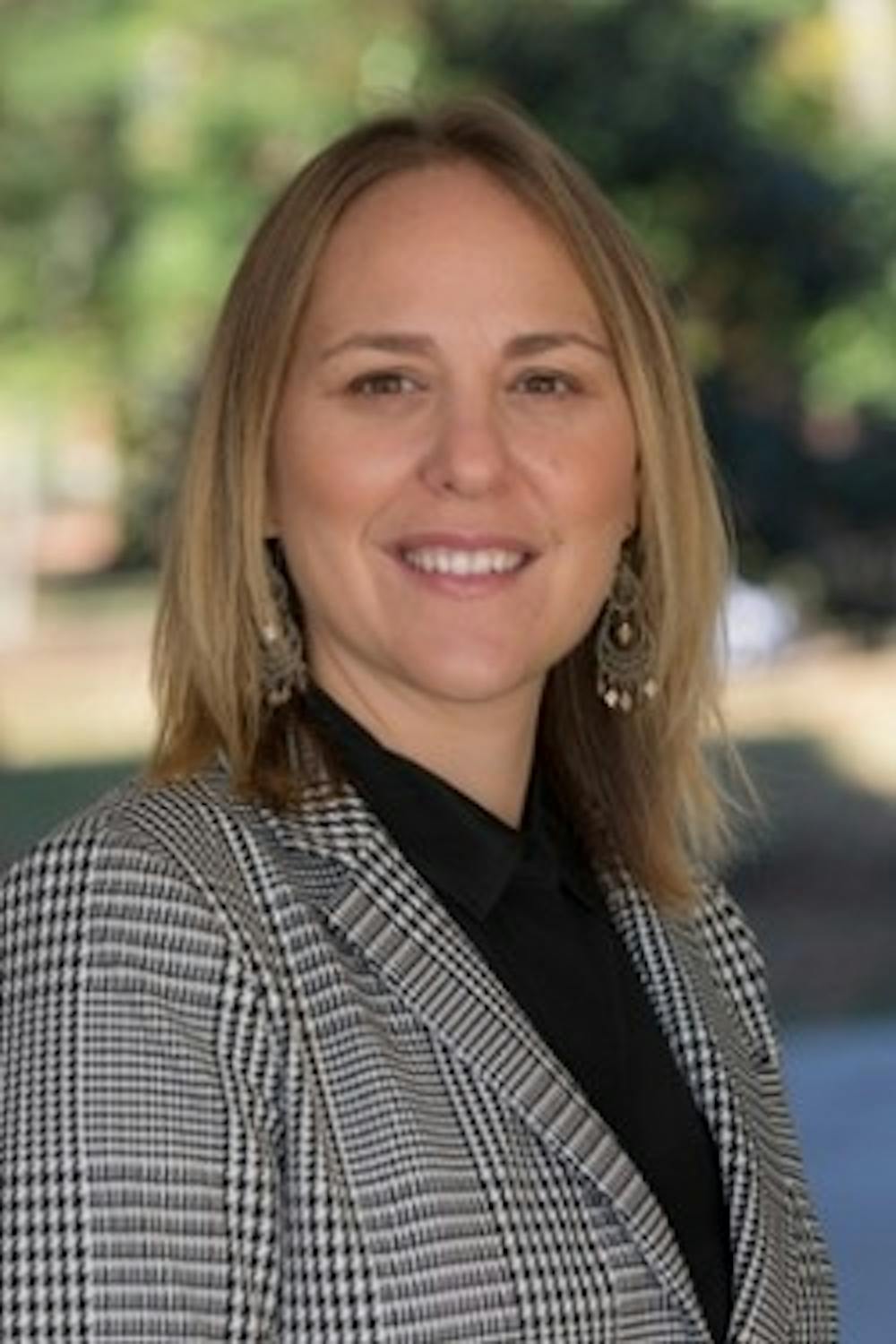As students grapple with online classes, the stay-at-home order and a generally different lifestyle than they thought they’d be living, the adjustment to pandemic life has proven to be unprecedented.
Throughout the transition, Dean of Students Kimberly Moore has sent several university-wide emails which include information on resources and updates about student affairs. The Office of the Dean of Students’ website states the office provides many resources for “students’ intellectual growth and personal development.” Dean Moore, having dealt with many coronavirus-related student life issues, has these suggestions and pieces of advice for students:
Q: What advice do you have for students about the transition to online classes?
A: The most important thing [with] remote learning is that you [have] to stay connected, even though the urge for a lot of students is to check out a little bit. Remote learning is a new style; it’s hard.
I encourage students to push through and resist any urge they have to throw in the towel. Stay connected to your class work and your professors. Make sure [that] if you’re having any challenges, you ask for help. I know it’s hard sometimes to ask for help, but even for the strongest students, this new version of learning can be a challenge.
There are so many people standing by to help students through this, so it really requires asking for help.
Q: What kind of things are you and your departments/teams doing to stay connected to students?
A: There are many things we’re doing. Everything we could do when we were not remote is operating remotely. My office, as the Dean of Students, is all about advocating for students who are facing unexpected challenges, like internet access issues and helping them get connected to those resources.
We have students who are experiencing financial hardships, and we’ve got ways to connect students to resources that way. We are all standing ready and are very active in connecting to students across the board.
Q: What kind of problems have you heard from students? What solutions have been put in place?
A: There are a lot of students who are just struggling with the mode of learning, and we are looking for solutions. I think the credit/no credit option was a great solution to some of those problems we’re having on the academic side.
Other big questions were from students who left their belongings in the residence halls. We are working on a process for students to come back and get their stuff once the stay-at-home order is lifted.
Enjoy what you're reading?
Signup for our newsletter
Another question revolved around personal hardships, like students with food or housing insecurities. We are working right now with the Student Success Center and Enrollment Management on hardship grants. We’re doing what we can.
Q: For students struggling with mental health and routine issues, what’s your advice on balancing school and health?
A: I think keeping one’s spirits up is so important, as well as trying to take care of yourself as best as you can. If you had mental health needs and challenges before [the coronavirus], and you had treatments in place, don’t give up on them.
Try to maintain a schedule. Pay attention to your emotional well-being — it is a major factor in your well-being. It’s important to prioritize studies, but it’s really important to make sure you’re taking care of all the dimensions of your health.
Make sure you’re carving out time in the day to find joy, to reflect on the good and to give thanks for the things that are still good in our lives. It’s important to acknowledge that things can be challenging right now, but it doesn’t have to be the whole story.
Q: How has it been helping international students during this time?
A: [International Students and Scholars Services] is doing the logistical pieces, but we’ve worked with quite a few international students who are facing financial hardship because they were on lease in Oxford but needed to get home to be safe.
It’s mostly a case-by-case basis. We have a lot of international [students’] parents who are very interested in what we’re doing to keep students safe on campus, particularly around the virus. So we’ve shared our plans with them about the safety of students still on campus. We’re also communicating with prospective international families about what we’re doing and how they can get connected to the resources that directly impact their needs. We’re really just trying to offer as much information as we can.
Q: What do you have to say to seniors and freshmen as they navigate these important milestones amid the coronavirus?
A: To freshmen: there’s lots of wonderful Miami experiences ahead. Don’t lose faith. All the things that make Miami a wonderful place to be are still intact and will be here for you when you come back in the fall.
As far as seniors, there’s still lots of ways to stay connected to Miami. This is certainly a unique way of ending your four-year on-campus experience, but nobody can take away the memories or the rich experiences in your time.
We’re going to be working really hard on a way for you to come back to campus in the fall so you can celebrate the way you anticipated. Remember how valuable memories are. It’s important for all students, staff and faculty to remember what brought us to Miami. It’s about the rich community, and that’s still very much intact. Memory and reflection is one of our most valuable tools right now.
Q: What is your advice to students who are worried about fulfilling graduation requirements?
A: The provost’s office is continually working with state guidelines and individual cases; either a program-specific case or individual student case. My advice to students sitting with concerns is to check in with your program chairs and stay connected with your faculty to work through it.
It’s very important to voice concerns, reach out and ask for help. There's a lot of accommodations and changes happening. Keep self-advocating and pushing.
Q: What services are you providing online to students right now?
A: We’re all very active on social media. So follow Student Life’s Instagram and Twitter and my Twitter account. We’re very active there, and there’s a lot of information coming through those pipelines. The biggest example of what we’re doing is offering [remote] tutoring on tutor.com.
Students who are facing immediate and short-term financial hardship, there are forms on the office of the Dean of Students’ website to request assistance. All my offices have a [coronavirus] page on their website to direct them to a support-seeking page.
Q: Any other comments directly to the students?
A: I just really encourage students to try to reach for the silver lining in all this. Change is hard, and disruptive change is even harder. I just really encourage students to try to stay as positive as possible. We’re here to help. We’ll all be back on campus before you even realize it.




